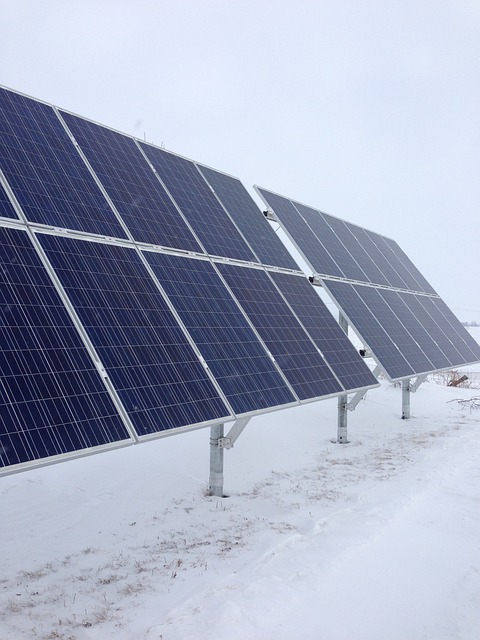
If you live in a region that regularly experiences subfreezing temperatures during the winter, you might be wondering whether solar panels will work in cold weather. Solar panels have become increasingly popular. According to the U.S. Department of Energy (DOE), the cost of solar panels has decreased by roughly 70% since 2014. And with their lower price tag, more and more homeowners are investing in them.
Yes, Solar Panels Will Still Work in Cold Weather
Solar panels will absolutely work in cold weather. They don’t require warm temperatures to generate electricity. Solar panels generate electricity from particles of sunlight known as photons.
All solar panels are made of a photovoltaic (PV) material. PV materials – monocrystalline, polycrystalline, amorphous, etc. – are able to convert photos into electricity. When photons strike a solar panel, the electrons within the solar panel’s PV material will become excited while breaking free of atoms.
Cold Weather and Solar Panels: What You Should Know
Photons will strike solar panels regardless of the outdoor temperature. Whether it’s warm or cold, solar panels will continue to generate electricity as long as they are exposed to photons. Solar panels work by leveraging photos; they don’t require a specific temperature.
Solar panels may even generate more electricity in cold, albeit not freezing, weather than warm weather. Their embedded electrons will become more responsive to photons in cold weather. As a result, you may discover that cold weather is beneficial to your solar panel installation.
What About Snow?
While they can work just fine in cold weather, snow may interfere with the performance of solar panels. Photons can pass through a light layer of snow. Assuming the solar panels aren’t caked in a thick layer of snow, they’ll continue to generate electricity. Too much snow, however, can restrict photons from reaching the solar panels.
There are ways to protect solar panels from snow. Installing them at an angle, for instance, will discourage snow from building up on them. Solar panels installed at a 35-degree angle are better protected against snow buildup than those installed completely flat. When installed at an angle such as this, snow will fall of solar panels.
In Conclusion
You don’t have to worry about cold weather having a negative impact on your solar panel installation. As long as there’s not a thick layer of snow covering them, solar panels will continue to generate electricity. They’ll convert the sun’s light particles into readily available electricity for your home.

